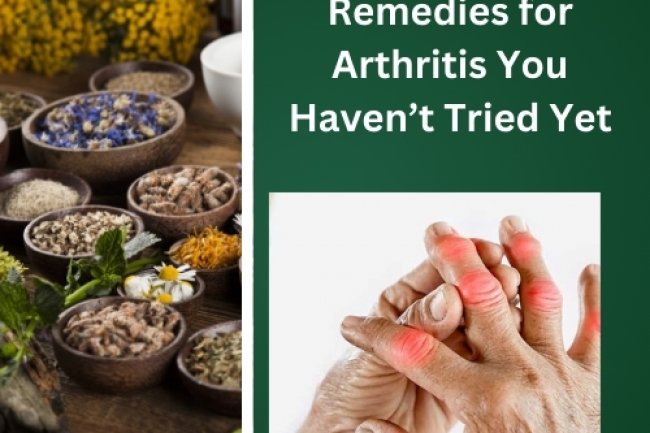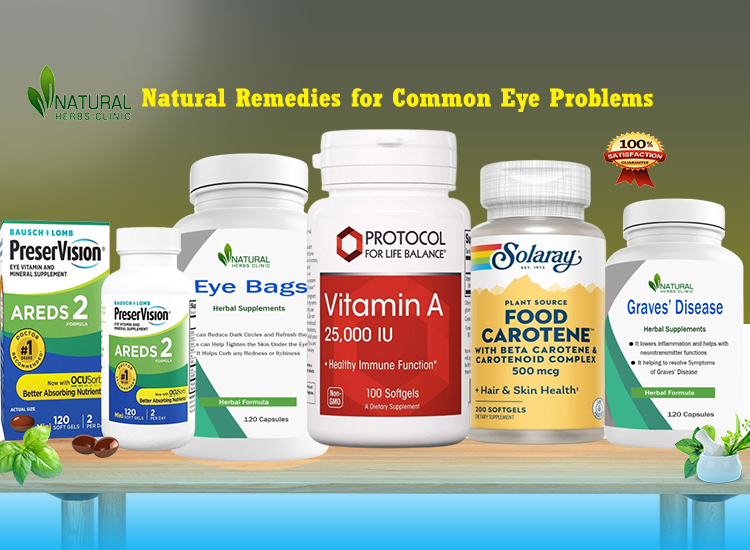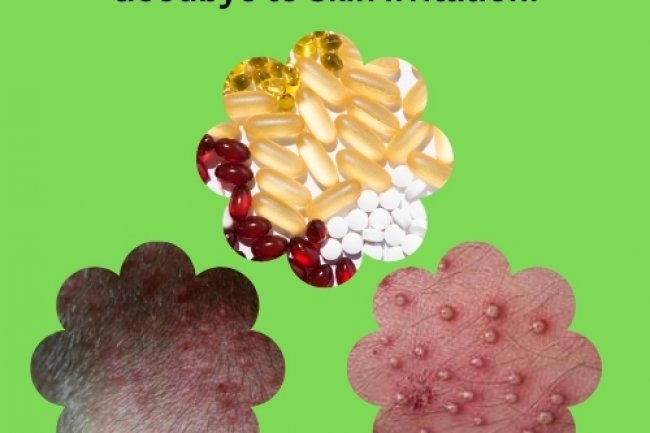Detoxing the Body: Does It Really Improve Lung Function?
Detoxing the body can improve lung function if you think of it as supporting your body’s natural cleansing systems rather than relying on extreme cleanses or quick fixes. A healthy diet, safe herbal remedies, and positive lifestyle choices give your lungs the best chance to function well.

Lung health is a major concern for millions of people worldwide. Whether you live with chronic respiratory conditions such as asthma, bronchitis, or bronchiectasis, or you simply want to maintain strong and healthy lungs, you may have come across the idea of “detoxing the body” to improve breathing.
But does detoxing actually work, or is it just another wellness trend? Let’s explore what detox really means, how it affects the lungs, and which approaches may support better breathing and overall health.
What Does Detoxing Mean?
The term “detox” usually refers to cleansing the body of harmful substances, such as environmental toxins, chemicals from food, or pollutants from the air. Some people use detox diets, juice cleanses, herbal teas, or supplements to help remove waste products and improve energy levels.
However, your body already has its own natural detox systems. The liver, kidneys, lungs, skin, and digestive system all work together to filter toxins and keep your body balanced. This means that extreme detox methods are often unnecessary.
That said, lifestyle changes and natural remedies can support your body’s ability to cleanse itself and, in turn, improve lung function.
How the Lungs Detox Naturally
Your lungs constantly filter the air you breathe. They capture dust, bacteria, viruses, smoke, and pollutants. Tiny hair-like structures called cilia move mucus and unwanted particles upward, so you can cough or swallow them. This is your lungs’ own detox mechanism.
However, this process can weaken over time due to smoking, pollution, respiratory diseases, or age. That’s why people look for ways to “boost” lung cleansing through detox practices.
Can Detoxing Improve Lung Function?
The answer depends on how you define detoxing. Quick fixes like juice cleanses rarely improve lung health in the long term. But certain evidence-based approaches—such as eating a nutrient-rich diet, using safe herbal remedies, and improving lifestyle habits—can support your lungs’ natural ability to clear toxins.
For example:
- Eating foods high in antioxidants (berries, leafy greens, citrus fruits) can protect lung tissue from oxidative stress.
- Staying hydrated helps thin mucus, making it easier to clear from the lungs.
- Practising deep breathing exercises increases lung capacity and oxygen exchange.
- Avoiding smoking and reducing exposure to air pollution helps prevent further damage.
These methods don’t “detox” in the trendy sense but do create a healthier environment for your lungs to function.
Foods That Support Natural Lung Detox
Your diet plays a vital role in keeping the lungs clean and strong. Certain foods reduce inflammation, improve oxygen uptake, and protect lung tissue. Here are some examples:
- Garlic– Contains allicin, which has anti-inflammatory and antibacterial effects.
- Ginger– Helps reduce airway inflammation and improves circulation.
- Turmeric– Rich in curcumin, known for its antioxidant and anti-inflammatory benefits.
- Green leafy vegetables– Provide chlorophyll, which may support oxygen transport.
- Citrus fruits– High in vitamin C, which supports immune defence in the lungs.
- Apples– Contain flavonoids that improve lung function.
Including these foods in your daily diet gives your lungs natural support without the need for extreme detox programmes.
Herbal Approaches to Detox and Lung Support
For centuries, people have turned to herbs to support respiratory health. Certain herbal remedies may ease inflammation, reduce mucus build-up, and support breathing.
For example, many people exploring Herbal Remedies for Bronchiectasis use herbs such as mullein, licorice root, thyme, and oregano for their expectorant and soothing effects. While research is ongoing, some studies suggest that herbal extracts can improve mucus clearance and relieve cough.
Brands such as Herbs Solutions By Nature provide herbal formulations specifically for respiratory issues, focusing on natural ingredients to promote lung health. If you prefer a natural path rather than heavy medication, these options may be worth considering, but always discuss with your healthcare provider before starting.
Lifestyle Practices That Support Lung Detox
Beyond food and herbs, certain daily practices help your lungs stay clear and healthy:
- Breathing exercises– Techniques like diaphragmatic breathing, pursed-lip breathing, or yoga breathing expand the lungs and improve oxygen exchange.
- Physical activity– Regular exercise increases lung capacity and strengthens respiratory muscles.
- Steam therapy– Inhaling warm steam may loosen mucus and relieve congestion.
- Good hydration– Drinking enough water keeps mucus thin, making it easier to expel.
- Air quality control– Use air purifiers, avoid smoke, and spend time in fresh outdoor spaces when possible.
These practices work with your body’s natural systems to support lung detoxification and function.
Detoxing Myths vs Reality
The wellness industry often markets detox diets, pills, or teas as quick fixes for better lung function. It’s important to separate myth from reality:
- Myth: Detox cleanses remove toxins instantly.
Reality: Your liver, kidneys, and lungs already detox effectively. Extreme cleanses are unnecessary. - Myth: Detox teas cure respiratory diseases.
Reality: Herbal teas may soothe symptoms but cannot replace medical treatment. - Myth: A one-week detox reverses years of damage.
Reality: Lung healing requires long-term lifestyle changes, especially quitting smoking and eating well. - Myth: Detox diets are safe for everyone.
Reality: Restrictive diets may cause nutrient deficiencies, especially in people with chronic illnesses.
Always approach detox trends with caution and rely on practices backed by science.
Detoxing and Chronic Respiratory Conditions
If you have a chronic condition such as asthma, COPD, or bronchiectasis, you may wonder whether detoxing helps. The truth is that detox methods cannot cure these conditions, but supportive lifestyle changes may improve your breathing.
For instance, people with bronchiectasis often seek Alternative Treatment for Bronchiectasis to reduce symptoms naturally. While herbal remedies, breathing exercises, and a nutrient-rich diet may provide relief, these approaches should complement—not replace—medical care such as physiotherapy, antibiotics, or inhalers.
By combining natural support with prescribed treatments, you can achieve better overall lung health.
Can Detoxing Remove Environmental Toxins?
We live in a world where pollution, smoke, and chemicals are unavoidable. While you cannot completely detox your lungs from these exposures, you can reduce their impact by:
- Avoiding smoking and second-hand smoke.
- Using masks in highly polluted areas.
- Keeping your home ventilated and clean.
- Choosing natural cleaning products to limit chemical inhalation.
- Spending time in green spaces to breathe fresher air.
These actions don’t erase past damage but do protect your lungs from further harm.
The Role of Supplements in Lung Detox
Supplements often claim to support detox and lung health. Some ingredients that may help include:
- N-acetylcysteine (NAC):Breaks down mucus and improves airflow.
- Vitamin C and E:Provide antioxidant protection for lung tissue.
- Omega-3 fatty acids:Reduce inflammation and support immune function.
- Magnesium:Helps relax airway muscles and ease breathing.
While supplements can be helpful, they should never replace a balanced diet or prescribed medication. Always check with your doctor before starting new supplements.
Safety Concerns With Detox Practices
Not all detox practices are safe. Some may cause more harm than good:
- Extreme fasting or juice-only diets can weaken immunity and cause dizziness.
- Unregulated detox teas may contain laxatives that cause dehydration.
- Excessive use of herbal remedies may interact with medications.
- Overuse of supplements can damage the liver or kidneys.
Always choose gentle, sustainable methods that support your body’s natural systems rather than pushing them beyond their limits.
Practical Steps for Supporting Lung Health Naturally
If you want to keep your lungs clear and strong, here are practical, safe, and effective steps:
- Quit smoking if you haven’t already.
- Eat a diet rich in antioxidants, vitamins, and anti-inflammatory foods.
- Stay active with regular exercise and breathing exercises.
- Use natural herbs wisely to support respiratory health.
- Stay hydrated to keep mucus thin.
- Protect yourself from polluted air whenever possible.
- Work closely with your healthcare provider if you have chronic conditions.
These habits don’t promise instant detox, but they do create long-term benefits for your lungs.
Final Thoughts
Detoxing the body can improve lung function if you think of it as supporting your body’s natural cleansing systems rather than relying on extreme cleanses or quick fixes. A healthy diet, safe herbal remedies, and positive lifestyle choices give your lungs the best chance to function well.
For those managing respiratory diseases, including bronchiectasis, combining medical treatment with natural support—such as breathing exercises, diet, and Herbal Remedies for Bronchiectasis—can make breathing easier and improve quality of life.
Instead of chasing the latest detox trend, focus on sustainable changes that truly support your lungs and overall well-being. Your body already has the tools to detox—your job is to give it the right support.
What's Your Reaction?
















